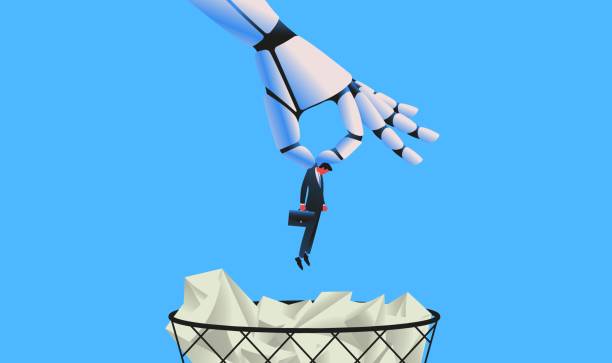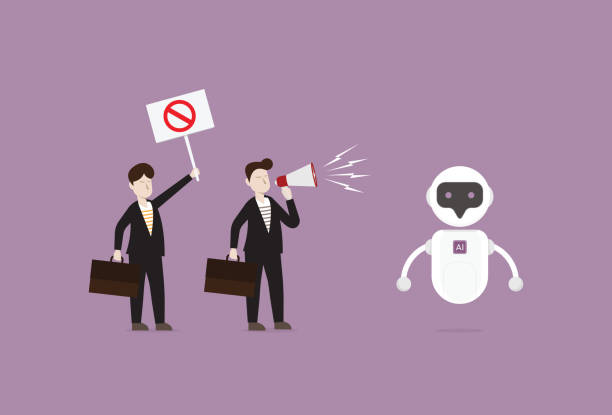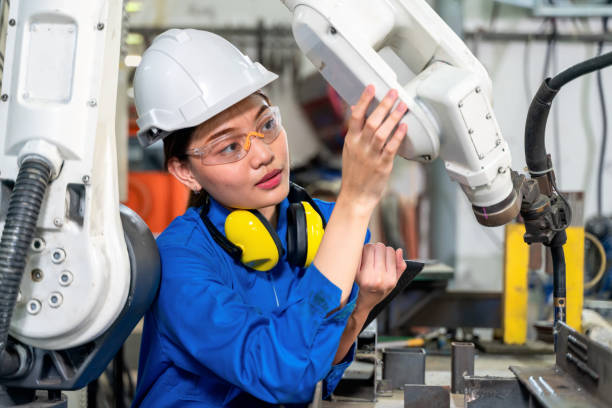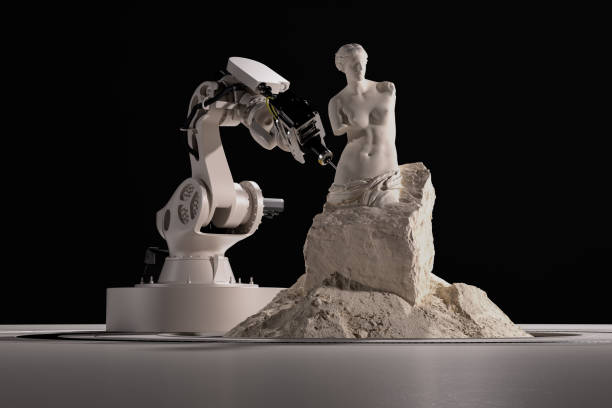
Is AI taking jobs away from employees
Artificial intelligence (AI) has dominated the workforce and raised many concerns regarding its usage. It has stirred ethical debate as to how far technology should be used and what rights it should be given. With major concerns that the introduction of AI is taking jobs away from employees. However, all industries have unanimously agreed that AI is necessary for their future development. Without some form of AI, companies and industries will not be technologically developed and fall behind compared to their competitors.
Is AI already at your work?
It is likely that AI has already been implemented in your workplace. Whether employees directly interact with the software, or it’s a feature of the workplace. The most common type of AI that employees tend to think of is ChatGPT, or similar software. Some industries have developed their own ChatGPT software that is specific to the knowledge that they require.
The legal profession has developed ChatGPT to search for relevant case law, summarise documents, and create basic forms. Car dealerships have begun using ChatGPT software to display virtual showrooms. And companies have begun using ChatGPT software to create quick marketing material such as ads and posters.
However, there are also other implementations of AI that a regular employee may not consider. For example, virtual assistants and chatbots all use some form of AI. There has been an increase in customer service type roles utilising AI technology to reduce the monotony of customers asking the same questions. However, there is always a human employee to help if matters need escalating.

Most types of internal data analysis and predictive analysis are AI generated. This type of work is perfect for AI tasks as they can quickly and effectively digest monumentous amounts of information. Formatting the necessary information in a way that is easily accessible for employees. While there may not be a human employee combing through the data, there still requires a person to interpret and apply the information as necessary.
AI chooses whether employee receives job
AI may also affect recruitment practices as they have replaced some Human Resources responsibilities. While this is not a new development, some potential employees may not be aware that most resumes (particularly larger companies) have AI software to sift through to find the most suitable candidates. Particularly as recruitment practices are typically done online through electronic means. Long gone are the days of real people combing through hundreds of resumes.
The general consensus is that AI is used to automate redundant and repetitive tasks rather than completing whole jobs. An employee typically has a list of responsibilities and tasks rather than a single repetitive one.
What do experts say?
Experts who have analysed the trends of AI are not worried about it taking away jobs from employees. The World Economic Forum has estimated that by 2025 AI will have created 12 million more jobs than what it has eliminated. It is more likely that the technology will be used to alter jobs rather than replace them all together. Meaning that employees will have more availability to complete more interesting, challenging, or complex tasks that may not have been possible earlier.
The job market is constantly changing. And with the rise of AI and technology there is a shift to what is now needed. There are currently entire industries and careers that did not exist or were not in demand 10 years ago. However, it has been seen numerous times how the job market changes, and people learn how to change and adapt with it.

Do not be fooled by AI
Additionally, industry professionals are not worried about AI as they are unimpressed with the technology. Not that the technology cannot cannot complete great work that it was designed to do. Particularly around organisational and repetitive tasks. However, the technology is not sophisticated enough to replace entire job titles. Most jobs require critical thinking, initiative, and human interaction that AI simply cannot replicate at this moment.
Furthermore, AI does require human interaction. It can only do as much as what is being placed in the software. If the software was designed to comb through the entire internet, that is still all human contributions that have been written, filmed, produced, or published. Therefore, there will always be jobs that create the material that AI reads from.
AI does not have the ability to create new ideas, invent, or produce anything entirely new in the world. Therefore, there are limits to its capabilities and relies on employees to complete the process.
Is AI stealing from employees?
One major ethical concern is the fact that they rely on man made material in order to produce anything. This is particularly controversial in artistic and academic positions. Because to use AI would mean that the employee is indirectly sourcing another person’s work in order for the AI software to create what they are asking. This type of AI is called ‘generative AI’ where they are outsourcing other people’s material to fulfil specific tasks or prompts.
One way to resolve this problem is for the AI to only use material that the company or employee has created and imputed. In some industries this is the norm. Such as summarising documents. However, from an artistic and academic point of view this would significantly reduce the usefulness of AI and render the software useless.

For these reasons AI is typically discouraged from these industries as there are serious ethical and sometimes illegal repercussions. There can be concerns of copyright and trademark infringement if it is found that AI was used to steal another person’s work. Regardless that it was unintentional.
Are employees smarter than Artificial Intelligence?
AI and the creative industry have a particularly strenuous relationship. The technology does open more opportunities and allow greater accessibility to creative spaces. Spaces that were only available for employees with highly specialised on certain programs, skills, and experience. However, many professions in the industry are scared of generative AI as the software could produce detailed and accurate pieces.
However, just because the software could create artistic pieces, does not mean that the software can be directly translated into a business model. To have software perform a certain task does require some user knowledge that the general public may not understand. Some AI software does have a language of its own in order to optimise its usage. Whereas, most consumers would expect to be talking with a human employee and know how to communicate what they want in that type of formatting.
Additionally, creating AI images have certain characteristics and downfalls that make it incompatible with certain creative industries. Historically generative technology have struggled to depict human hands, faces, or text. Resulting in human intervention in order to fix these mistakes. These types of disadvantages can be translated to many industries. AI is not an all encompassing and perfect tool. There are limitations to its abilities. Therefore, employees, whether creative or otherwise, should not be afraid to lose their jobs due to AI.
Who is helping employees?
There is currently no formal legislation that regulates how AI is implemented in the workplace or how it affects employees outside standard workplace and surrounding law. The Australian government has been in discussion on how to minimise the effects of AI replacing jobs in the workplace. However, officials have highlighted that there are no major disruptions or displacement from AI. Nothing akin to entire industries being affected or unemployment skyrocketing. Therefore there is less pressure to implement any government intervention.

In 2003 the unemployment rate was about 6.0%. This further decreased in 2013 with a rate of unemployment at about 5.7%. Then recently in 2023, employment was at a low of 3.8%.
As shown in the snapshot above, unemployment has been relatively steady and shows indications of declining over the previous two decades. However, unemployment is affected by many factors and the above information shows limited data. The introduction of AI to the workforce does not seem to be a prevalent factor.
Per the Australian Financial Review, one recommendation the government has considered is changing redundancy consultations. That if an employee is at risk of being made redundant due to AI then the employer has some responsibility to train the employee in the AI technology and automation. With the hope that trained employees will be able to incorporate AI into their job now that they have a fundamental understanding of it.
Stay ahead with a competitive edge
Just because AI is not currently replacing jobs at a frightening pace, does not eliminate that chance in the future. Therefore, the government is still responsible for monitoring rising technology and how that may affect employees. Starting to implement some AI regulations may be a good preventative measure if there are concerns of rising unemployment and redundancy rates for future technology.
Officials are hesitant to restrict AI in the workplace. Historically the introduction of new technology had created more employment opportunities and helped evolve the Australian workforce. To restrict evolving AI is theorised to jeopardise the advancement of Australian labour and technology. Where new technology tends to bring ew innovation. Where the goal is to increase job opportunities and reduce unemployment.
The biggest recommendation is for employers to “reskill” their employees. Teaching employees how to collaborate with AI and new technology. Rather than being afraid or unsure once AI and automation is implemented in the workplace. There may be an opportunity in the future for companies to have real and enforceable responsibility regarding AI and automation training. However, for the moment there are no formal requirements.

Don’t get left behind
Just because AI may not pose a large threat to employment now, does not mean that it may not pose an issue in the future. Or that a completely new type of technology may enter the workforce and pose similar threats.
All employees should be considering their job security. One aspect of that is to be aware of AI, generative AI, automotion, and all new technology that may affect their workplace. The first step is to become knowledgeable about the topic. For some positions this may not be necessary. However, employees who understand upcoming and relevant technology have a competitive edge against their peers.
With knowledge, employees will also better understand how to implement technology in efficient and creative ways. With the hope that the employee will not be replaced, however their position becomes more elevated as they utilise AI to their advantage.
In a competitive environment, it is also important to continuously upskill and reskill. It may become the employers responsibility to teach their employees about AI, however employees should take initiative for their job security now. Even without the threat of AI and emerging technology, there will always be benefits to professional growth and development. Further creating a pivotal employee that their employer does not want replaced.
Finally, employees should focus on building and maintaining human relationships and connections. AI and technology cannot replace the way we interact with other humans and employees. Therefore, there is always a benefit to networking and building professional relationships at work. Whether that be with other colleagues, peers, clients, or customers.
Stay ahead of the curve
For over three decades, A Whole New Approach has helped Australian workers fight for their rights via the Fair Work Commission. We are not lawyers, but Australia’s leading advisors and commentators. Give us a call to ask for advice and seek representation. No matter if you have been unfairly dismissed, undergoing an workplace investigation, facing discrimination or harassment. We have the tools and knowledge to help.
We operate in every Australian state and territory and we offer a no-risk, no-fee service.
Contact us today at 1800 333 666 for a free and confidential conversation about your specific situation.






